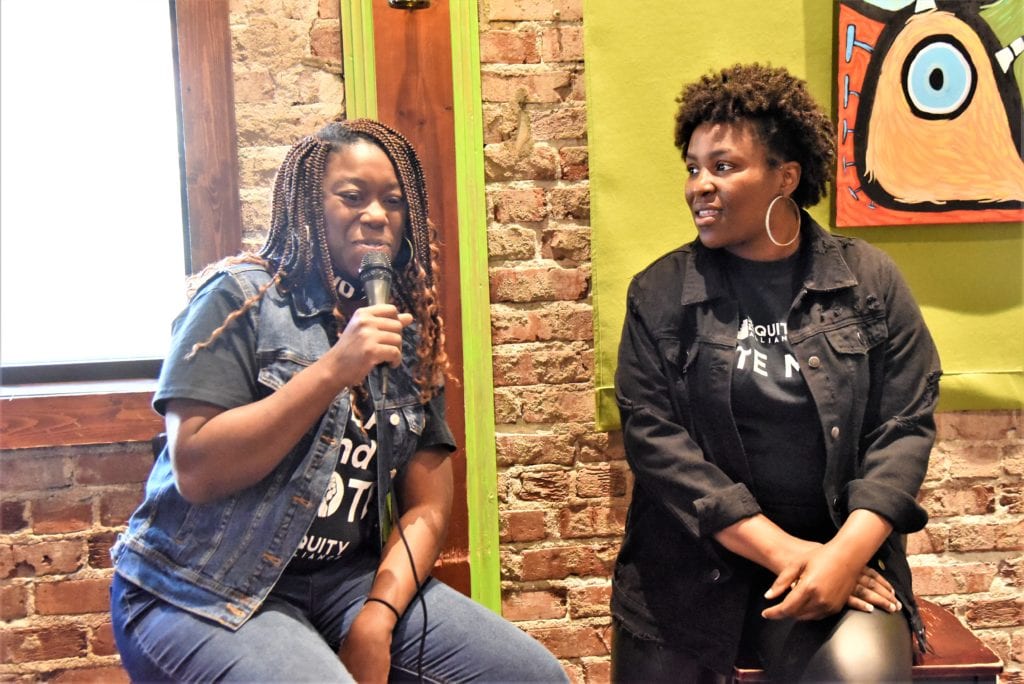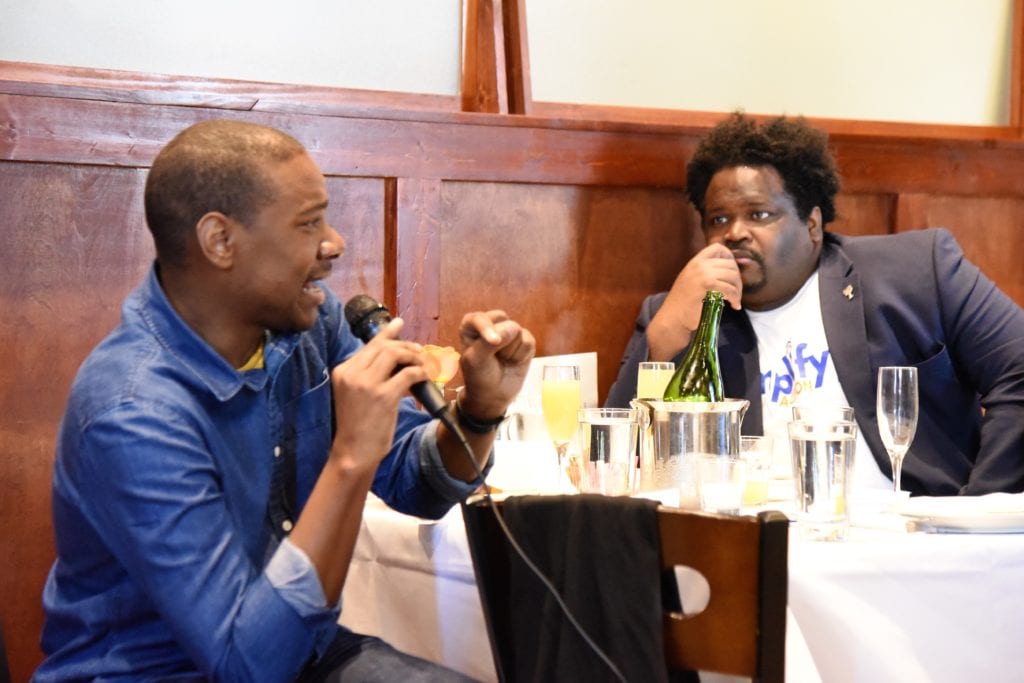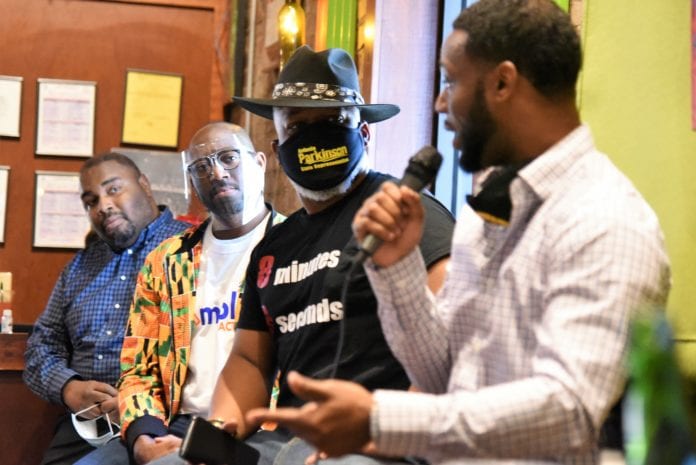Tequila Johnson and the Equity Alliance is “all about using our voting power in the fight for social and economic justice for people of color.”
That anchoring premise was the baseline for a discussion last Saturday at Rizzo’s at 492 South Main St. Specifically, said Johnson, the event was designed to generate a conversation with Black men about what it means to be politically engaged.

The Equity Alliance is a statewide “black-founded, black-led nonprofit organization fighting to build independent black political power across the South.” Johnson is co-founder and co-executive director of the group.”
“It was a thought-provoking conversation,” Johnson said of the brunch and panel discussion dubbed Why Black Men Vote Liberal or Conservative?
“What we realized at the end is that regardless of what party you affiliate with, all Black people want the same thing, and that is access to the American dream, life, liberty and the pursuit of happiness.”
Moderated by Fox 13 anchor Tony Sloan, the panel featured State Rep. Antonio Parkinson, Sijuwola Crawford with #UpTheVotel 901 and Paul C. Boyd former Shelby County Probate Court Clerk.
Reflecting on the conversation, Parkinson told The New Tri-State Defender, “I wanted to make sure that they understood that we have the power to fix our own issues and we need to move away from dependence on others.
“We can control our own destiny as a people,” said Parkinson. “We must vote, but we must direct our economic powers and ability along with a huge voter turnout.”
The Equity Alliance was founded in 2016 by five Black women “seeking to make change in our community through amplifying the political voices of Black individuals and making sure we had access to government information and resources,” said Johnson.
“The Equity Alliance is all about using our voting power in the fight for social and economic justice for people of color.”
Black people, said Crawford, “should organize around policy more than parties and issues more than individuals.”
An organizer of the Memphis People’s convention, Crawford said he sees people increasingly catching on to the idea of coalescing.
“I see pastors, community members, family members and friends asking what they can do to volunteer, to organize, to pull people in…
“There is a base coalescing around the Memphis People’s Agenda and I anticipate it being a powerfully mobilized base in the near future.”
Reached after the discussion, Boyd stressed the need for conversation about the best way for the African-Americans to exercise its power.
“The basic of that is getting out to vote. But it’s more than just voting. It’s making sure that we put good people in office and that we are involved in our community at every level,” he said.
Boyd, who is a Republican, said it’s about the community as a whole and not about whether one is a Democrat or Republican.
“It’s about discussion. The fact is unless we are engaged, we can’t progress. Even though I bring a right, conservative way of thinking to things, it’s about making sure that we don’t get stuck in a rut of a single way of thinking that limits us. … It’s about putting the best ideas forward, the best plans forward and actually make some real progress.”

In her reflection about the panel’s conversation, Johnson shared a series of questions that could serve to provoke community-building thought.
“Are we defined by our party affiliations?”
“Does it mean something for a Black man to either vote Republican or Democrat?”
“What does it mean for our community when Black men are either conservative or liberal?”
“And how does that materialize into the issues that we see happening in our daily lives?”



